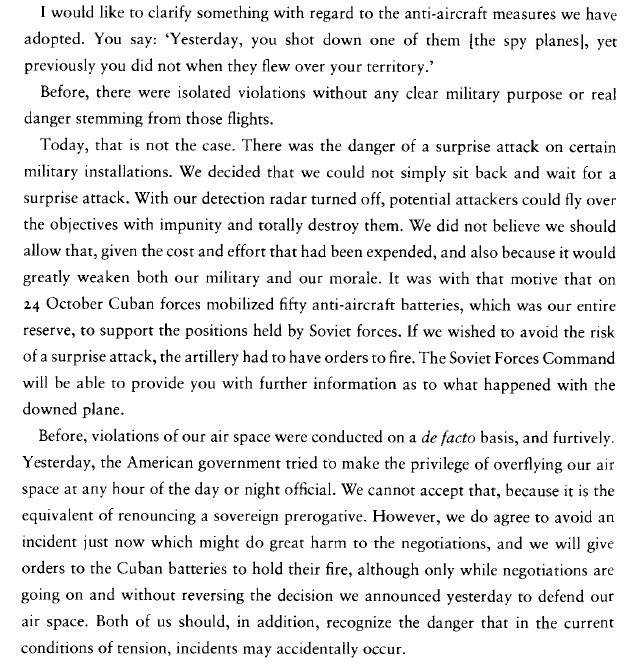

Fidel wanted to but cornman was a coward


Fidel wanted to but cornman was a coward


If you’re rly interested I’d suggest reading Cope’s book, as he lays out the figures and even the movement of the money better than I can with more citations than I can. As you suggest, it’s about the aggregate motion of capital. Take your restaurant example:
The restaurant isn’t losing money so long as imperialism persists, because they’re selling e.g. burgers for inflated prices. The burgers can be sold for inflated prices because e.g. construction worker is paid inflated wages. Construction company can afford to pay inflated wages because it’s buying artificially cheap materials and because it’s being paid inflated fees by e.g. a bakery. Bakery can pay the inflated fees because it’s buying artificially cheap materials and because it’s selling e.g. cakes at inflated prices. The cakes can be sold for inflated prices because e.g. tech employees are paid inflated wages. Tech companies can afford to pay employees inflated wages because e.g. government buys new windows hardware at inflated prices. Government can afford those inflated prices because a. the global south governments pay them yearly debt repayments or b. because they tax superprofit made in the global south.


why do business hire anyone?
And if all business in the core are inherently unprofitable, what is the mechanism that keeps them afloat?
Cope argues superprofits from imperialism


I can’t say I’ve ever heard that definition of value of labor power.
It’s the definition Marx uses in Capital. The difference between value of labour power and the value of the products of labour is the source of surplus value. Marx himself invented the category of labour power; earlier economists thought that the employer buys labour.
Why would capitalists pay these workers as much as, or more than, the value of their labor?
First off so they can buy the commodities and avoid the horror of warehouses full of unsold goods. Second off because the trade unions won higher wages. Arghiri Emmamuel’s Unequal Exchange looks at how that came about over the the 1860-1920ish period, then intensified after ww2.
in other words, the capitalist is either not making money or is actively losing money by employing them.
This is exactly Cope’s point; businesses in the global north are not profitable unless kept aloft by the superprofits


Costs of living are actually lower in terms of percentage of wage in the imperial core, as I said in original comment (as as Cope shows with numbers both for wages, costs of necessities and hours of labour to earn necessities)
Cope has read all three vols of capital and cites and engages with them extensively fwiw. He is aware of Marxs arguements and in fact cites Marx extensively to support his arguments. I would suggest reading the Cope book bc, tbh, you could probably follow the maths better than I could. He takes all your points into account and directly refutes them (some of them even in the two prefaces). It felt like reading Marx, in terms of his thoroughness.


Becauase the prices of those commodities, produced in the global north, are generally kept high bc the wages paying the people doing are kept high. In addition, theres a lotta expensive equipment thats much more availible in the north than south, and anyone caught doing medical treatment below these high, expensive, standards (or without a license) is imprisoned.
Also bc, yknow, in socialist countries that welfare is actually a concern. But you’ll also note that AES puts a lot more emphasis on preventative care than expensive treatments, when possible, because unlike in capitalism the goal isnt to wring out as much money as possible.
I’d also note as this is the marxism comm, “healthcare” isnt rly included in “value of labour power”. Value of labour power is the value required to allow the proletariat to exist, not to exist healthily. If the proletariat, as a class, continues to exist i.e. can afford sufficient food and shelter to not literally die—that is what capital considers the minimum value of labour power.


The vast majority of the work done in the belly of the beast involves the destruction of that beast, not the enlargement of the consumer class making up the beast’s stomach. That doesn’t mean all the work; there are very oppressed people in the US and there are ways to help them (e.g. seizing empty properties to house homeless people, forcing cities to allow empty spaces to be used by homeless people and/or for community gardening) that don’t rely on more exploitation (e.g. “build more houses using cheap materials from the global south and high wage construction labour in the global north”).
That said i wanna re-emphasise the degree of international inequality in hellworld.
In Divided World Divided Class Zak Cope maintains that there’s no legally (illegally, yes, but if one is paid min wage and working legal hours, no) exploited workers in the global north. He is using the marxist definition of exploitation i.e. “being paid less than the value of the products of your labour”, so he isn’t arguing it doesn’t suck to work a min wage job, but he is arguing that anyone paid the legal minimum wage is paid over and above the value of the products of their labour (if they are even a productive labourer). Cope shows that this inflated wage is largely paid through superprofits and their various redistributions.
Cope shows the degree of the inflated nominal and real wages relative to the South, and he argues that the source of these living standards is redistributed superprofits from imperialism. He lays out his numbers, sources and methodology for his calculations fairly upfront, alongside more detailed statistics in his appendices. He concludes that the Global North extracted around 8 trillion dollars of surplus value from the South in 2008 alone, which re-appears in the North in various amenities, social services, cheap goods, and high wages (3.4 to 3.7 times higher (in terms of purchasing power) in the OECD countries). These wages ofc exist so the capitalists have someone to sell their products to so they can realize the surplus value and prevent crises of overaccumulation through ever increasing consumption–but without the superprofits the capitalists would not have any money to pay this consumer class; every single global north company with legally employed global north workers would go bankrupt.
Even as the majority of people’s wages, livelihoods, etc become more stressful and precarious in the North over the last 30 years of neoliberalism(I’ve heard this called structural reproletarianisation, book was written in 2013 so is slightly dated regarding specific numbers), Cope argues living standards have been increasing; in the late 90s food, electronics, clothes, etc were all cheaper than they were in the early 70s and all sorts of novel luxuries became increasingly prevelent even in poor households. At the same time, wages accross the global south were being slashed, social programmes destroyed, environmental regulations voided, governments toppled, food prices spiked, etc. Wages in the north stagnated and jobs became more precarious and often shittier, but cost of living fell and continued to fall basically until the crash we’re in rn afaik.
Cope maintains that while it sucks to be a worker in the US, Canada, etc, it sucks much much more in the global south and the relative unsuckiness of work in the North is paid for by superprofits in the global south. Increasing wages in the north or demanding more equal sharing of the superprofits from imperialism are both demands that reinforce the citizen’s privileged position wrt the international working class.
That said, Cope doesn’t make the point that people in the north are to blame, or responsible for things (he is a marxist, not a moralist). His point is, that, much like the petite bourgeois as a class have property to reinforce, the citizens of the global north have a property (their entitlement to welfare, “safety”, cheap goods, political rights) that they don’t want taken away, which Cope argues is a key reason why, like the petite bourgeois, we often see the citizen working class of the global north turn towards fascism.



Carrying on the legacy of Deng Xiaoping 


comparing the v-man to kaustsky is an insult to kautsky


Mr. Satan did something much cooler; he saved the Earth from cell!!!


tangentially related but i’ve been watching dragonball from the start with some friends and its shockingly good (in spite of the horny old man trope)

You get nice compliments from strangers because they’re an economic status signifier.
omg just like in morrowind 


its fun to see how the logic that creates housing bubbles works


Christian brainworms i think


tbf to tolkien, his orcs are very blatantly EuropeanEmpire-coded, sam and tom bombadil are brown skinned, rangers other than aragorn are dark skinned, every evil group other than Sauron/Saruman & loyal minions is said and/or implied to be tricked or forced into the service of sauron with promises that sauron won’t keep–they aren’t portrayed as evil for this, imperialism is explicitly and literally condemned even if for technological advancement / profit (“were you ten times as wise you would have no right to rule me and mine for your own profit as you desired”), there’s (problematic, but super-progressive for the 50s where even many socialists were telling indigenous peoples they should just assimilate into Canada) ideas of landback for groups dispossessed by the “heroic” nations like Rohan and from very early on we have e.g. Gandalf saying we should feel bad for even his slave-soldiers (still have to fight them tho; can’t kill imperialism with love sadly)
Orcs and Urukhai are the soldiers of the industrial-evil (Sauron) and industrial-market (Saruman) Empires and are portrayed as ontologically evil because they are loyal and relatively willing soldiers of an empire bent on slavery and/or extermination and gleefully carry out this extermination. Their mannerisms in this (“just following orders” “give me your number and i’ll report this”) and mode of laying out their camps (grid based, square buildings) also accord more with a modern euro style military than the “ontologically evil savages” most other fantasy portrays them as.
Orcs and Urukhai are not the conscripts such as e.g. goblins who are explicitly described as wanting to desert and flee back to their holes following the breaking of sauron’s empire. A lot of text implies that the ontologically evil “races” in lotr are the result of the evil empires corrupting regular peoples who may be good or bad (e.g. Treebeard muses that Saruman might have combined Orc and Men somehow–the chapter before Ugluk says Saruman feeds them human flesh so this seems likely, ents are noted to look similar to trolls, and when trees wake up they can explicitly turn out bad rather than good). So rly imo we should look at Orcs/Urukhai in lotr less as “an independent society” and more as “commissioned officers of the british army”, and goblins/trolls more as “conscripted troops in the british army who want to go home but will nonetheless commit attrocities bc of the racist society they’ve been brought up in”


every single fucking time a friend of mine gets a romantic partner they suddenly never want to spend any time with me anymore. cos it’s totally normalized in society that you should prioritize romantic partners so heavily

Stay safe comrade, sucks out there sometimes 
Screenshots from Fidel’s autobiography, tldr (at least as I read it) is that Fidel wanted Cornman to nuke the US if there was any invasion of Cuba.
Fidel wrote to cornman on 26 october (27 october in russia) telling him to send nukes if he thinks an invasion is going to happen
Cornman wrote back on the 28th, basically telling fidel to chill bc he wants peace
And Fidel wrote again to Cornman the same day telling him that he will not chill cuba is in danger
Cornman replied on the 30th with a lotta platitudes (Cornman thought he won the missile crisis lol) but most relevant here is him saying fidel’s “send the nukes” idea was wrong
Fidel’s reply (Oct. 31) shows what he thought of Cornman’s ‘victory’: